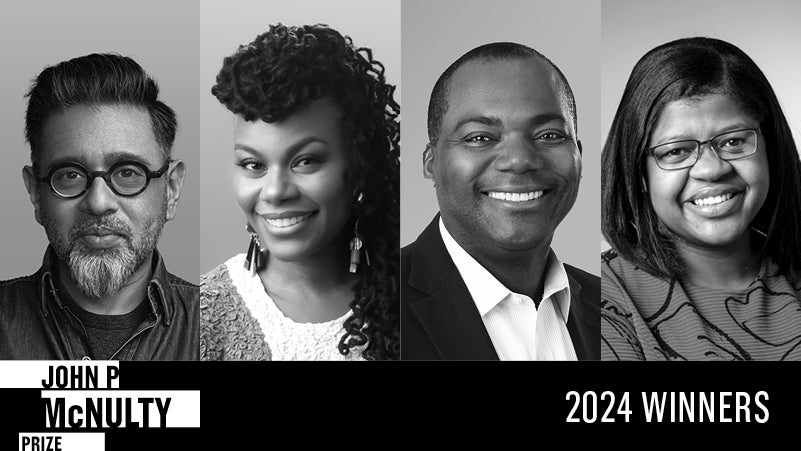“There’s nothing as powerful as an opportunity in this world,” says Juan D. Martinez Pineda.
Youth of color in communities across the United States face persistent and systemic inequities that drastically increase their barriers to opportunity. In order to change these systems, we must support efforts that grow and strengthen leadership pathways for those who are most impacted by those systems—especially the next generation.
Grounded in the healing power of nature and Indigenous values, Fresh Tracks provides young Indigenous, rural, and urban leaders with cross-cultural community-building skills, leadership development, civic engagement, and action training—in other words, an opportunity. An opportunity to become the leaders that their communities need.
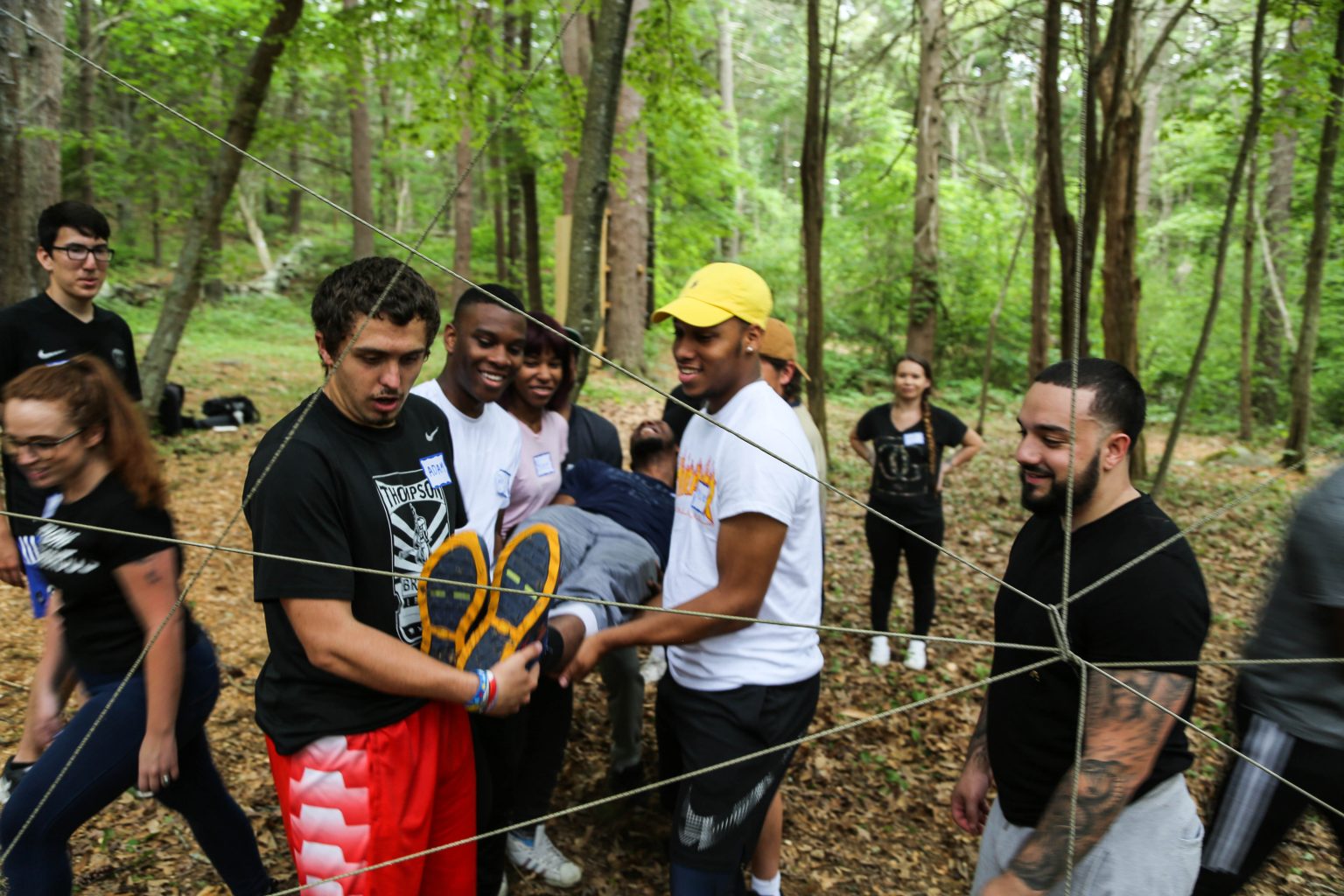
Fresh Tracks is not just a convening, or a workshop, or a conference. It is a journey of growth, putting young people in the driver’s seat to steer us to a better, more just future for all.
This week, Juan received the National Parks Conservation Association’s Robin W. Winks award, recognizing an individual or organization that has effectively communicated the values of the National Park System to the American public. As co-founder of Fresh Tracks, a program within the Aspen Institute Forum for Community Solutions, Juan has championed a cross-cultural movement empowering young leaders with the power of the outdoors and Indigenous practices.
“There are very few things that I have found in my career that accelerate trust like shared time and space in the outdoors,” he said. “We found that—through the outdoors—we can accelerate trust-building and the progress of solutions that we’re all seeking out there.”
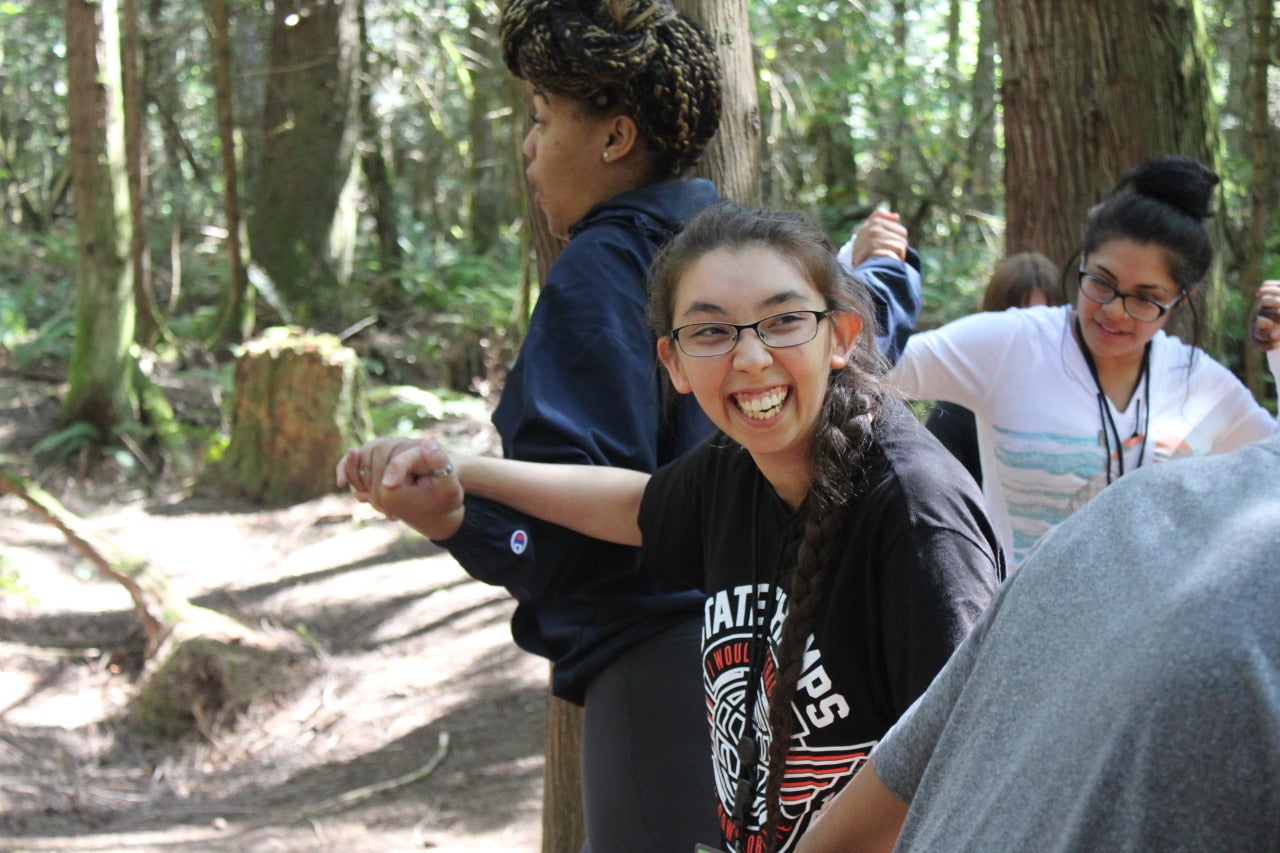
But Juan’s work goes beyond just bringing young people to the great outdoors—he’s rewriting the equation of how systemic change happens and what it means to invest in youth well-being. Crucial to this is connecting changemakers across issue areas.
“There’s the climate change people here. There’s the opportunity youth people over here. There’s the conservation people here. Name it and there’s a silo for it. What we’re trying to say is: can we break down some of those silos, even for a minute, and bring everybody together in the outdoors to find some shared common values and solutions and drive those forward?” he said.
“We’re not necessarily entirely focused on climate change or conservation or stewardship. We’re focused on the growth of individuals to create well-being for their communities, but with one of the core elements of that being the outdoors and culture. And so I think that that’s where we’ve re-written a bit of the formula. Where a lot of traditional conservation initiatives focus on climate resilience or preservation being the primary outcome—we’ve flipped that around and are saying that climate resilience, conservation, and stewardship actually lead to community well-being.”
Fresh Tracks was inspired in 2015 by a call from President Obama for bold new programs that used the outdoors to broaden horizons for young Americans facing persistent opportunity gaps.
“We had this crazy idea,” Juan said. “What if we brought together young people from Compton and Arctic Village, Alaska, and they each hosted each other in their own communities? After an intense two-week cultural exchange, what would it mean? What would resonate?”
When all was said and done, the two groups found a lot of commonalities, both in their triumphs and their challenges.
“It makes a difference when a young person from L.A. hears about climate change from the perspective of someone who’s having to deal with it every day in Arctic Village. It makes a difference when you read about it, but it makes a bigger difference when you sit across from somebody and are talking about it,” said Juan.

“Or someone from Arctic Village who has maybe heard about Black Lives Matter, but then all of a sudden they’re sitting across from someone who is Black and has suffered police brutality. So those moments, I think, surpass what we originally intended to be. We were offering a space for healing and cultural connections, and we found that we were teasing out something much bigger than the individual project that we had in mind.”
That first expedition prompted Fresh Tracks to go beyond just convening youth, to thinking about better understanding how the experience allowed them to develop the skills to be leaders in their communities.
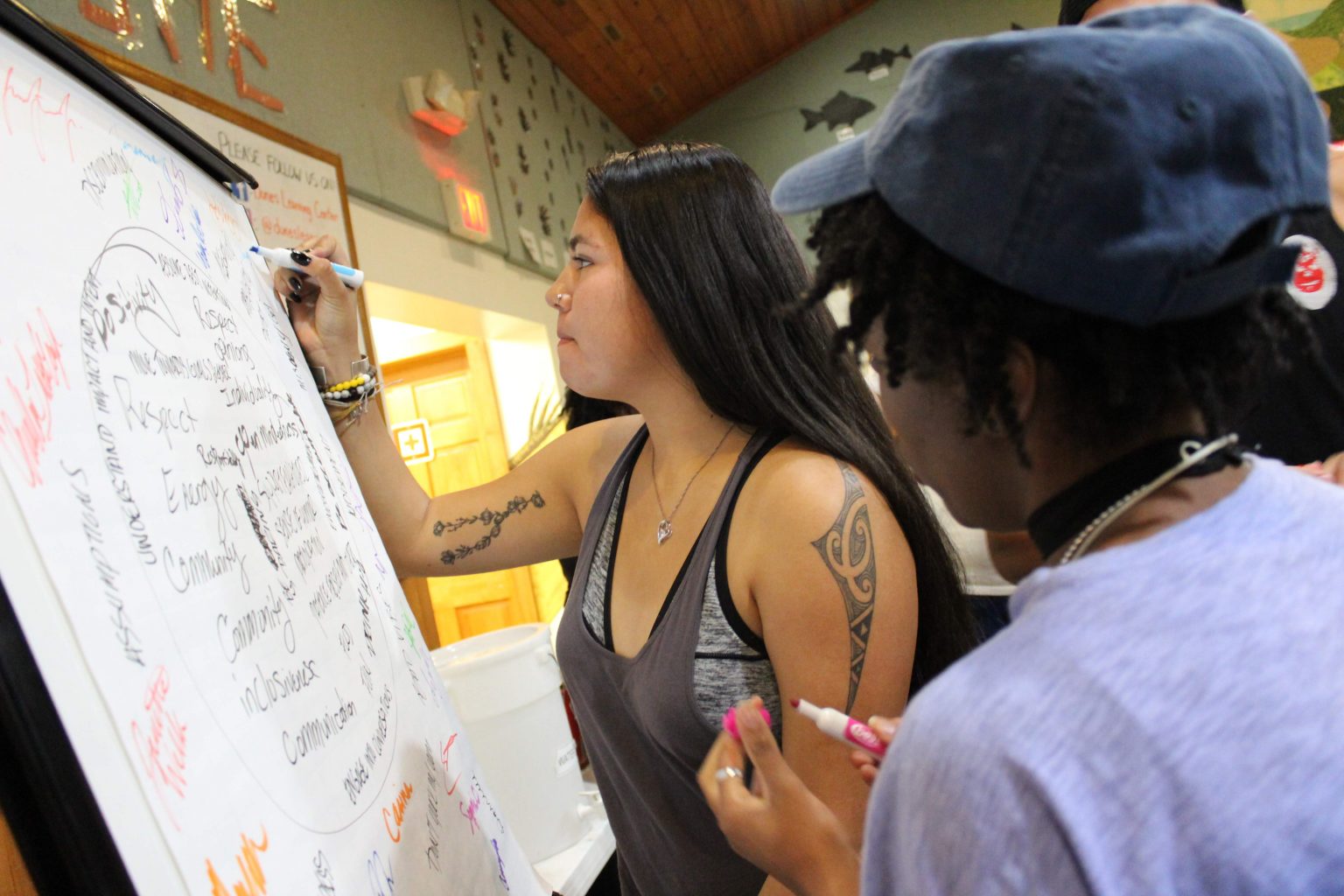
They partnered with the USC Marshall School of Business, who had developed an evaluation for CEOs and executives to test their leadership skill sets. Young leaders took the same evaluation—adapted for their purpose—and saw increases in leadership skills across the board after going through the experience. Fresh Tracks’ research and evaluation component has been “designed and co-developed with young people from the very beginning.”
“We started proposing that instead of adults talking about youth well-being, how about we have youth actually be the authors and developers and co-designers of what this space and movement looks like,” Juan said. “And that’s led us into this research and evaluation arm of our work where unexpected partners are now seeking us out. We’re starting to really influence policy and philanthropy in new and unique ways that we hadn’t thought about before.”
At the end of last year, Fresh Tracks announced a new partnership with the Department of the Interior. The program has maintained a relationship with the Department, primarily with the U.S. Fish and Wildlife Service supporting the Native Youth Climate Adaptation Leadership Congress. This new collaboration will assist the Department in engaging new leadership and measuring what success looks like.
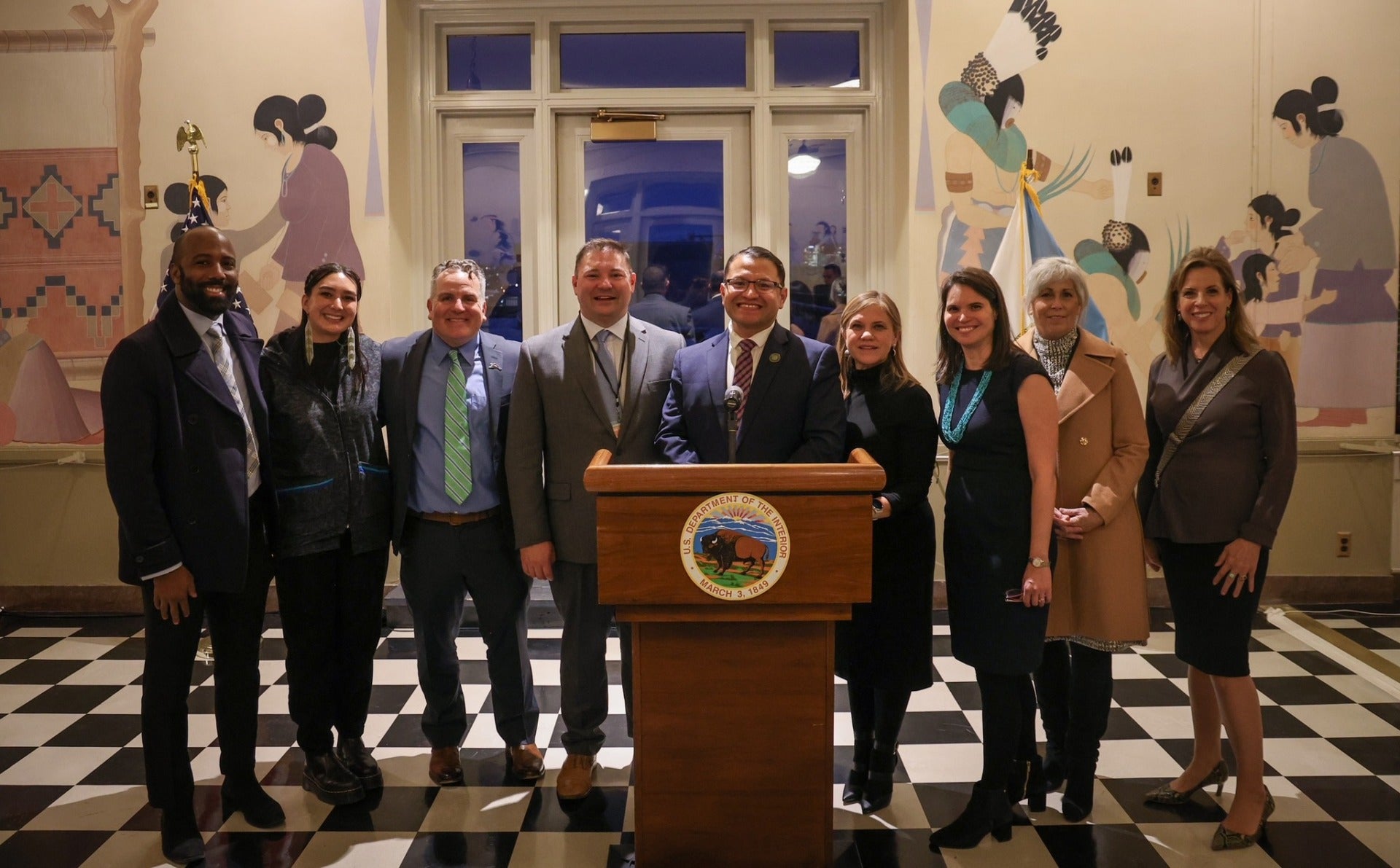
“They’re a government agency, so there are limitations in evaluating certain things,” said Juan. “But in partnership with us, we can walk alongside them and measure things that may inform their decision-making and resource allocation. We’re able to support the work they’re already doing, and bring our perspective to it.”
And this perspective that Juan brings is perhaps the most valuable piece of the puzzle. “Part of this is just approaching this world in an intergenerational perspective—another Indigenous practice,” Juan expressed. He is a descendant of the Zapotec (Be’ena’Za “The Cloud People”) Indigenous peoples of Oaxaca, Mexico.
This philosophy of youth-led and youth-directed research and programming has informed all of Fresh Tracks’ work. From compensating young people for their time and expertise to Juan’s willingness to practice radical transparency and honesty around topics that many adults would be overprotective about, the team is learning every day what it means to do true power-sharing with young people.
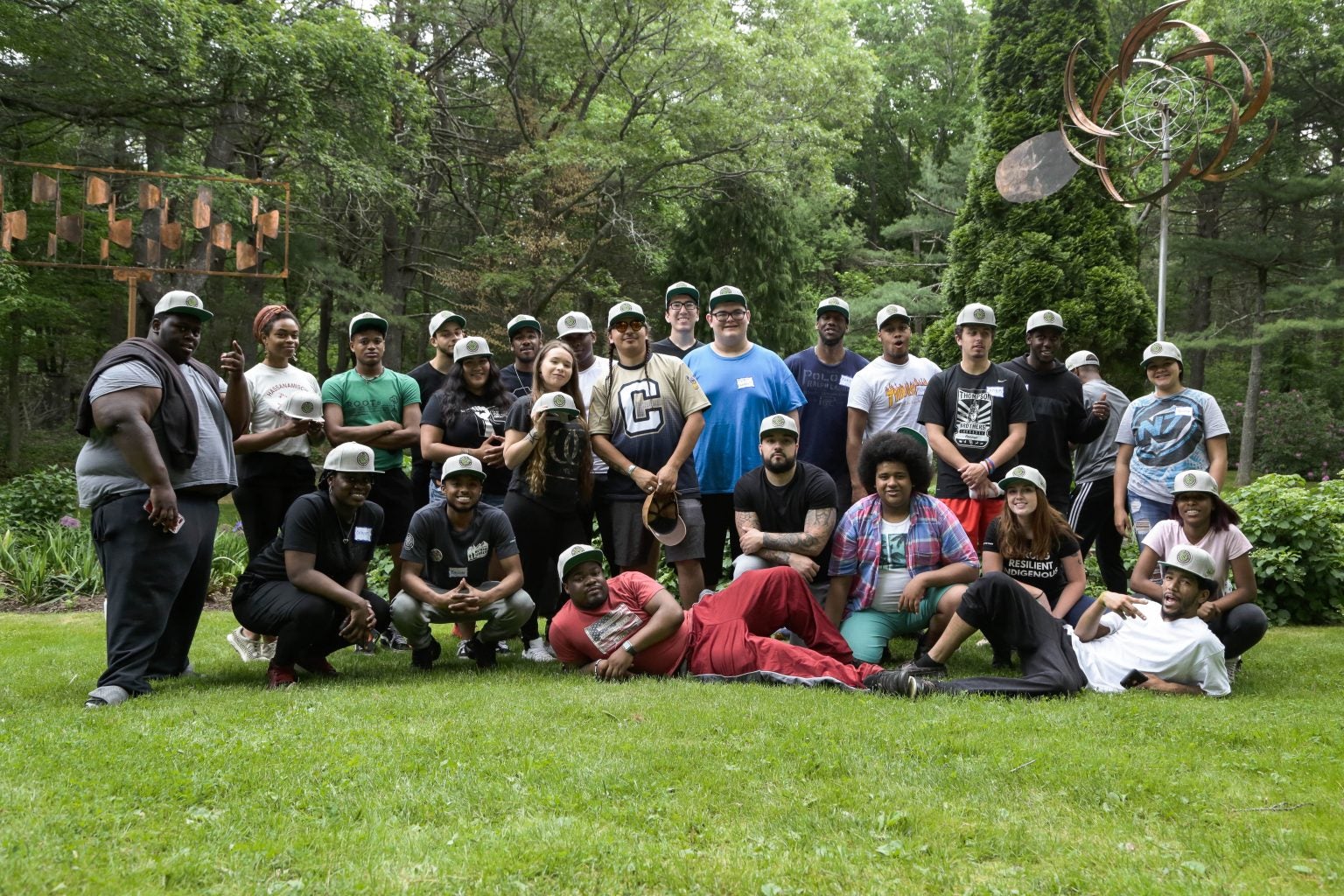
“It is beautiful when you actually see young people not just be spokespeople or, you know, just put on a podium or highlighted because of what they’re doing, but actually practice power and decision-making. And that redistribution of power and privilege is so key to the way that we function,” he shared.
“And it’s a fine balance to make sure that they are ready for that. It’s part of what we’re built around, to make sure that young people have the skills and capacity to understand what they’re stepping into, so that we’re not just throwing them into the deep end, but actually working with them, coaching them, and making sure that they’re ready.”

Last month, the program released a guidebook for adult allies to support young people in youth-led research, providing allies with processes, perspectives, and learnings as a framework for centering youth leadership. Anchored by Fresh Tracks and supported by the Annie E. Casey Foundation, the Youth and Young Adult Well-being Project relies on adult allies to help youth researchers by serving as supporters, advisors, and navigators.
It can be difficult to encapsulate the work of Fresh Tracks in a few words, and that complexity is deliberate: the intersecting nature of the issues facing youth today demands multidisciplinary thinking.
“We cannot think about an individual as a one-issue individual, because all of us care about multiple things. So why would the programming that we offer them be about just one issue? It can be a multidisciplinary approach to progress,” Juan shared.
As the program approaches its tenth anniversary next year, one thing is certain: with allies and supporters like Juan, the kids are going to be alright.
Photos courtesy of Fresh Tracks.

